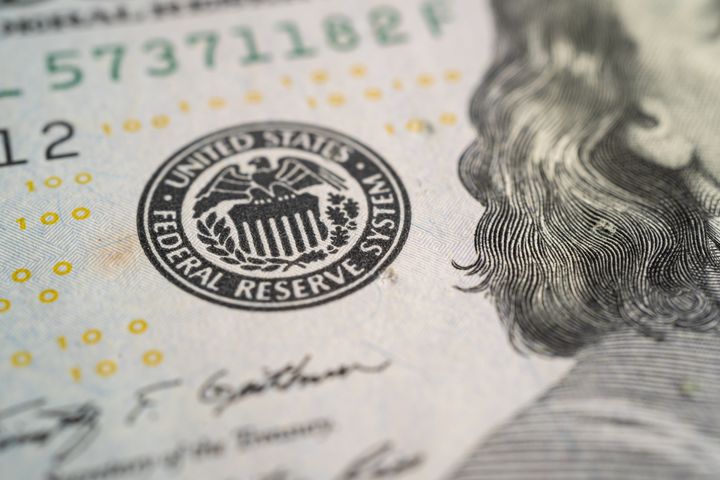I Ain’t Got No Privacy Concerns… Why Do You?

If you’re not concerned about having no personal and financial privacy because “you don’t do anything illegal, so you have nothing to hide”, stop reading RIGHT NOW.
Governments and privateers uniformly loath individualism, privacy, and independence. These controllers and elitists have three goals:
- Obstruct autonomy.
- Blow up self-sovereignty.
- And destroy the free market.
And the tactics in setting you up for failure are simple and transparent and include:
- Trifecta Control by Big Tech, Big Pharma, and Banksters
- Central Banks debase currencies by removing the value of purchasing power
- Regulation and control to prevent a true free market system
- The conflict between equality and liberty, as well as…
- Forced transparency vs. privacy!
This video talks about 7 Recent Privacy Developments That Should Keep You Up At Night!
One is a white paper titled Canada’s Digital ID Future – A Federated Approach, in which the Canadian Bankers Association (CBA) outlined its thesis on transitioning from current standard analog ID and personal authentication to a nationwide infrastructure overhaul.
The paper explains that passwords, SIM cards, and all manner of documentation hard copies are cumbersome and potentially entirely unnecessary.
Right?
I’d feel much more comfortable leaving all that in the hands of the banksters… or the government.
Or Klaus Schwab’s World Economic Forum (WEF), for that matter.
I mean, who wouldn’t trust the bank, the government, or the WEF with all their personal financial information?
Only criminals and conspiracy crazies, right?
Diabolical Ménage ÀTrois
But what is the love triangle between the WEF, digital ID, and Canadian banksters?
Look, we all feel safer already after the Truckers For Freedom Protest, knowing how easily the Canadian government and its banks can declare people terrorists and steal their money (fiat and Bitcoin).
Maybe that’s why the WEF selected the Canadian Bankers Association (CBA) to advocate for creating a federated digital identity scheme in Canada.
According to the WEF, banks should handle that responsibility because they are heavily regulated (and therefore trusted) and have the cybersecurity infrastructure needed to operate nationally.
Right…
According to the CBAs white paper, among attributes to be amalgamated within a Canadian digital ID are a person’s driving license, healthcare identity, financial tools, and biometric data such as fingerprints and facial ID.
Potentially, additional personal data such as a person’s sexuality, credit score, criminal record, gun license status, and vaccine status could be included in a digital ID.
Fun times!
And do not make the mistake of thinking the mighty WEF and its digital ID scam is only coming to Canada!
In 7 Recent Privacy Developments That Should Keep You Up At Night above, we talk about six more digital ID schemes already knocking on the world’s door – these are only the tip of the iceberg.
A Digital Privacy Pandemic
How often have you clicked on “Do You Accept Our Cookies” or “Have You Read Our Privacy Policy” without reading the privacy policy?
Next time this pops up in your browser, open the message, read the policy and think about what they’re going to do with your data. You are not the only person with privacy concerns!
American Statistics
Pew Research Center conducted a study that explores how adult Americans feel about the state of privacy in the nation. According to their research:
Prevalence of tracking: 72% of Americans (roughly six-in-ten Americans) report feeling that all, almost all, or most of what they do online or while using their cellphone is being tracked by advertisers, technology firms, or other companies. Close to half (47%) of adults believe at least most of their online activities are being tracked by the government.
Offline behavior: When it comes to offline behavior such as where they are or whom they talk with, 69% believe companies are tracking at least some of that activity. And 56% of Americans think the government is tracking at least some of their activities, like who they are talking to or their whereabouts.
Not feeling in control of personal data: About half of Americans feel as if they have no control over who can access their online searches. Roughly eight-in-ten or more U.S. adults say they have very little or no control over the data that government (84%) or companies (81%) collect about them.
Risks vs. rewards of data collection and profiling: 81% of Americans think the potential risks of data collection by companies about them outweigh the benefits, and 66% say the same about government data collection about them.
Concern about how data is used: 79% of adults assert they are very or somewhat concerned about how companies are using the data they collect about them, while 64% say they have the same level of concern about government data collection.
Lack of understanding: 78% of U.S. adults say they understand very little or nothing about what the government does with the data it collects, and 59% say the same about the data companies collect.
Privacy laws: There is also a general lack of understanding about data privacy laws among the general public: 63% of Americans say they understand very little or nothing about the laws and regulations currently in place to protect their data privacy.
The Beginning of the End
Digital IDs pose one of the gravest risks to human rights of any technology that we have encountered. Worse, we are rushing headlong into a future where new technologies will converge to make this risk much more severe.
Soon, digital IDs will become necessary to function in a connected digital world – making possible the application of near-perfect facial recognition technology and other identifiers, from the human gait to breath to the iris. Biometric databases are being set up so that these individual identifiers are centralized, insecure, and opaque. Then there is the capacity for geo-location of identifiers—that is, the tracking of digital “you”—in real-time. A constant feed of insecure data from the Internet of Things may well connect you (and your identity) to other identities and nodes on the network without your consent.
In addition, artificial intelligence and machine learning systems are used to make decisions based on our identities. Those systems are often built on data that can reinforce bias and discrimination, and are wielded without sufficient transparency or human review. Ultimately, social credit systems, such as those that are currently being developed in China, will be based on digital ID, thereby enabling or disabling our full and free participation in society.
Buyer beware: By developing these technologies in parallel with systems for a digital ID, they are not simply establishing an identity to access basic social services.
They are preparing to control your mind, money, and body. And this is how it starts.
Let me know what you think in the comments, is giving up privacy and autonomy necessary for the greater good?




